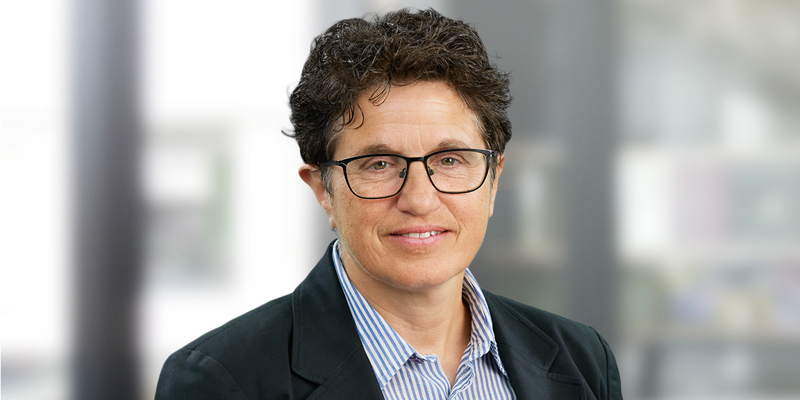
Pride Month: a personal reflection on changing times
This Pride Month, we look back at partner Fiona Read's reflections on what has changed for members of the LGBTQ+ community over the past 30 years as she moves from being a partner to a consultant.
At this significant time in my career I find myself reflecting on how we have got here. The changes in the past 30 years for the LGBTQ + community in the UK have been so vast that it is hard to remember everything that has happened and how incredible it is.
As a family lawyer I wonder too whether the legislative changes have prompted the seismic shift in society’s attitude toward LGBTQ+ people or whether legislation followed societal change. I expect it goes both ways.
The 1980s & 1990s
My personal journey started in the 1980s after coming out as a lesbian. We were very much on the fringe and were vulnerable to homophobic attacks. This was Thatcher’s Britain and there was no concept of equality or respect for family life if you were LGBTQ+. You were to be despised and hated…all of which culminated in the hideous Clause 28 of the Local Government Act 1988. This stated that the local authority was not to promote homosexuality or publish any material with the intention of promoting homosexuality. Most significantly, it must not promote teaching in any school “of the acceptability of homosexuality as a pretended family relationship.” This was at a time when there was a genuine belief that a person could be brainwashed to change their sexuality. No one wanted to be in an unspeakable class not entitled to have any recognition of their family life. So years followed in which LGBTQ + people were victimised. With the arrival of the AIDs epidemic amongst gay men in addition, the situation was catastrophic. Clause 28 was the law until it was repealed on 18 November 2003, some 15 years later.
What is interesting is that just a year later in 2004 the Civil Partnership Act, which gave recognition for the first time to same-sex partnerships, was made law. It came into force on 5 December 2005. How could this happen so soon after the repeal of Clause 28? Our response to all the homophobic legislation was to campaign, demonstrate and publically come out wherever we could to try and remain visible. Gay Pride marches were and remain LGBTQ+’s annual showcase. Despite this, I do not recall a massive shift in social response to LGBTQ+ people in the 1990s but there was a slow and steady trickle of understanding. When New Labour got into power in 1997 the tide had definitely turned and a new era of enlightenment began.
Campaigning
I was involved with a variety of legal groups campaigning at this time, the most interesting of which was the Solicitors Family Law Association (as it was known then), now Resolution. Following a “think tank” day the Cohabitation Committee was formed. The committee undertook extensive research of the law impacting cohabitees worldwide. It identified the vulnerability of anyone who cohabits in this jurisdiction and encouraged the Law Commission to review this area of law, which they did eventually in 2007. The Government has still not followed through the Law Commission’s recommendations for a change in law for cohabitees (now 15 years on) but in the course of the early part of the campaign, the committee helped formulate draft legislation which was then put forward in Private Members’ bills in Parliament. The purpose of this was to start the discussion and build up momentum for legal change. The debate centred on whether changing the law for cohabitees was really necessary as people could get married. But not everyone could get married and, in particular, not same-sex couples. From this mushroomed the concept of a separate regime for same-sex couples to have similar rights to have their relationship publicly acknowledged as a marriage. Civil partnership was born and gathered apace, supported in particular by Stonewall. The campaign for civil partnership for same-sex couples gathered momentum so that the issue of the change in law needed for cohabiting couples was essentially sidestepped at that time. But it at least recognised that everyone has a right to a family life.
The Civil Partnership Act
When the Civil Partnership Bill started to go through the committee stages I was engaged with the Lesbian and Gay Lawyers Association in checking that the legislation as far as possible mirrored marriage. It was for the most part fine. The main issue centred on pension rights for the civil partner on death or separation, particularly the statutory schemes for the civil service and the armed forces. The Treasury estimated the cost of this would be prohibitive, so proposed that pension benefits to a surviving civil partner would only be backdated to the date the legislation came into force. Eventually contracted out schemes were backdated to 6 April 1988 but not the non-contracted out schemes (most of which were in the public sector). Pressure groups had to concede this to get the Bill over the line to become law. This in itself was an enormous success. Case law has changed this anomaly since. Not permitting backdating of a pension is now deemed to be incompatible with the Equality Act 2010.
From this time the open legitimacy of civil partnerships changed social attitudes. It was far harder to be homophobic and unsupportive of LGBTQ+ relationships once they were legally recognised. Many young people who had not experienced discrimination of LGBTQ+ people before this time could not comprehend why there had been an issue. Suddenly we became mainstream and there was no turning back.
Marriage
Progression to the extension of marriage rights to same-sex couples was just a matter of time. The Marriage (Same Sex Couples) Act 2013 became law and enforceable on 13 March 2014, just seven years later. Civil partnerships were offered to opposite-sex couples under the Civil Partnership (Opposite Sex Couples) Regulation 2019. Equality of the status of a relationship now exists across the board and, whilst there is progress to be made on other fronts, we have a more civilised and respectful society. I never thought any of this could happen in my lifetime...how things have changed.
All this goes to show how important legislation is in changing attitudes and how family law plays a central part. These were human rights hard-won. There is no room for complacency however. There are still huge land masses (continents, let alone countries), Africa and Russia to name but two, where being LGBTQ+ is either illegal or one’s rights are severely restricted. There is still a long way to go until there is equal treatment worldwide, and equal treatment for all LGBTQ+ communities, but the movement has started. I sincerely hope as I transition into this new stage that we will carry on making further inroads.
Fiona Read is a consultant in the family and children team (as of 1 July 2024). She has extensive experience in all aspects of family law, and is a leader in the field of family resolution.
Get in touch
If you would like to speak with a member of the team you can contact our family and children solicitors by email, by telephone on +44 (0)20 3826 7520 or complete our enquiry form.









